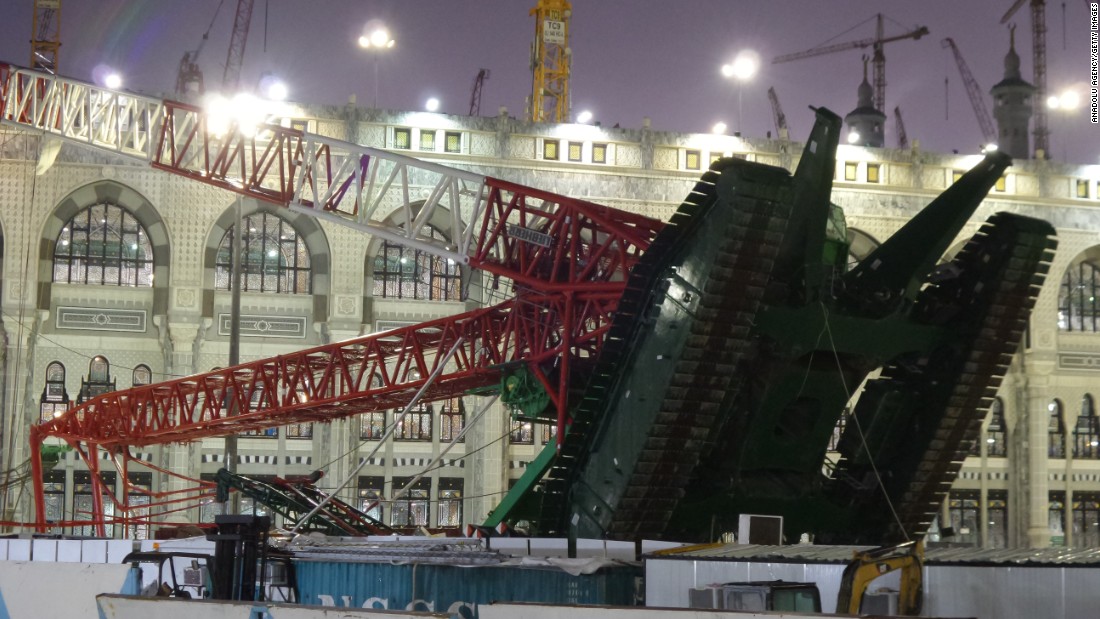The date September 11 now has three tragedies attached to it – The World Trade Center, Benghazi and the Hajj crane collapse. It is time for both East and West to mourn these tragedies
MECCA, Sept. 22, 2015 – The date Sept. 11 now has a string of three tragedies attached to it. First was the terrorist attacks on the World Trade Center in New York City, then the attack on the U.S. consulate in Benghazi.
Now, 14 years later, a crane collapse at a mosque in Mecca has collapsed, killing 100 pilgrims.
The date has divided Muslims and non-Muslims. Since 2001, Western societies have blamed Muslims for the 9/11 attacks, while Eastern societies have attempted to prove that they had no role in those terrorist activities.
Sept. 11 is now a time for East and West to come together to remember those who lost their lives in tragedies on that day.
Comparing the reactions to the tragedies reveals the cultural and political differences between the West and the Middle East.
Reaction to 9/11 in the West
- After Sept. 11, 2001, the West focused on terror and terrorists. The United States and the UK fixated on fears that terrorists were coming after them, and there was a “War on Terror” and a push to prevent future attacks. The West sought to understand the roots of hatred toward West.
- The Sept. 11 Victim Compensation Fund was created by an Act of Congress, the Air Transportation Safety and System Stabilization Act (49 USC 40101), to compensate the victims of the attack (or their families) in exchange for their agreement not to sue the airlines involved.
- Many governmental agencies, non-governmental agencies and the public established fundraising and charity organizations helped families of the victims.
- Sept. 11 became part of history lessons taught at schools.
- Much more is being done to remember victims and make sure such a disaster does not happen again.
Reaction to 9/11 disaster in Middle East:
- According to International Business Time, “Sheikh Ahmed al-Ghamdi, former head of Mecca’s religious police said the accident was a ‘test’ from God and ‘We need to accept what happened.’”
- So far, only the Bengal State Government has stated that the family of an Indian pilgrim named Muniza Ahame will receive compensation from this government. The compensation is Rs.10, about $22,411.
- Culturally, it is an honor for people to be killed in such a holy place. Because they are considered martyrs and go straight to heaven, there is no need for compensation.
- The Saudi government can easily point to the Binladin Construction Co. and possibly fine it.
And the world is safe again. End of story.
The Saudi government, like every government in the world, should be held responsible for keeping its people safe. It hold responsibility for the crane collapse and for not taking additional security steps during Hajj, when the site was exceptionally crowded.
Was it necessary to continue construction during Hajj season? Or would the wiser decision be to postpone it until after 3 million pilgrims left the country?
The Saudi kingdom is obligated to serve pilgrims, especially when Hajj generates revenue of about $9 billion to this country.
Yet because of its focus on revenue over the needs of pilgrims, it sacrificed the lives of 100 people.
Binladen Construction may officially take the blame for the crane collapse, but the real responsibility lies with the government of Saudi Arabia.




